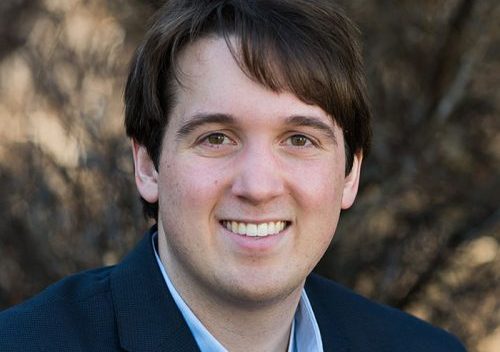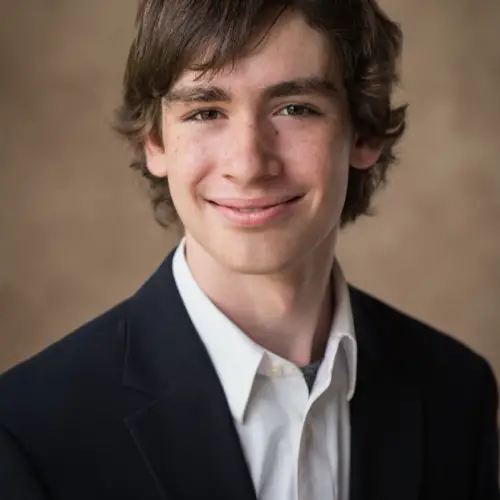Jacob Pavlecic, a 20-year-old politics and philosophy major studying at the University of Pittsburgh, is running for a seat in the Pennsylvania House of Representatives. Despite his young age, Pavlecic understands the importance of political participation and hopes that his involvement will inspire others to take action.
Liam Mayo: You’ve spoken in other interviews about how you were inspired to go into office by a conversation with a friend. Did you see running for office as a realistic possibility at that time, or did that realization come later?
Jacob Pavlecic: I would be lying if I said I never thought about running for public office, even when I was in high school and college, but I always thought that would come later in life.
Back when I was talking with my friend, I realized that there was a chance that it could happen this soon. That’s where it started, then it took me about a couple weeks or so to decide, ‘You know what, this is something I definitely want to give a shot.’
LM: How have your studies as a politics and philosophy major shaped your view of politics?
JP: The politics side comes in handy because you see how government is theoretically supposed to work, and when you’ve looked at [it] historically, you’ve seen how things are supposed to work, and when people make compromises or try to get things done.
I think even though, since I’ve been alive, it’s just been incredible polarization, I think it’s helpful to see that hasn’t always been the case, that people can reach across the aisle and get things done.
The philosophy aspect of it is great, I think, for trying to understand how exactly you’re trying to go solve a problem, because there’s multiple ways to try to solve different problems, depending on how they’re set up. In politics, for most issues, we have solutions.
For balancing the budget, for example, it’s not a question of “We don’t know how to balance the budget”; we have several possible solutions — we can cut programs or raise taxes. So we’re not really trying to solve the problem of the math.
The issue is trying to build political support around one of the solutions. I think people miss that sometimes, and I think philosophy helps set you to trying to understand how you need to set up the problem.
In politics, the main problem is not trying to find a clear solution to things, it’s “How do we build political support for these specific solutions? How do we get these specific things done for the specific issue?”
LM: What would you say is the role of data and research in politics?
JP: It’s huge. One of the things I said that I want my campaign to be based on is evidence-based solutions. In this day and age, we have so many great universities or think tanks running models and running experiments to see how different programs work in different areas. I think that needs to be a huge thing.
We need to try and stray away from, at least in the policy making role, “armchair arguments” — what we think is going to happen — because sometimes there’s counterintuitive results, and so we look to what actually has happened.
That being said, I think everybody else needs to be aware of the limitations of data. I’m a big fan of Nate Silver’s 538, and he’s talked a lot about how, just because you have a model, and you get some sort of result, even if you do everything perfectly right, there’s always uncertainty around that, regardless of whether or not the experiment was even set up right in the first place.
While it has a hugely important role to play, it’s also not the be-all, end-all. There still needs to be analysis as to “Was the experiment set up right? What are the assumptions that go into any model? Are they correct?” and you have to take whatever the results are with the acceptable bounds of uncertainty that is just with anything when you’re dealing with data or experiments.
LM: What kind of impact are you hoping to have on state politics?
JP: If I’m so fortunate enough to get elected, I fully recognize that I would just be one representative among 253 people in the Pennsylvania state legislature, and you have to work with everybody else. I think my three priorities are stuff that has some bipartisan support.
I really want to try to, as much as possible, focus on issues where there is some agreement between the two sides, and work to get some things done. They might not be the most transformative things to get done, but at the same time, people just don’t trust governments right now, across all the political spectrum.
People just have no faith that they can trust their leaders, and I think that the most important goal of any elected official is to try to fix that. We need to get people to believe their leaders are trying to do the best things for them, and so to do that, I think you need to try to fix issues, even if they’re small ones.
Just build up a lot of small victories. It can add up over time. That would be my main focus.
LM: Do you think that kind of bipartisan working together is possible in the current political climate?
JP: I think it all depends on leadership, and it all depends on the issues you focus on. For example, in Nevada and New Jersey, they both passed these specific solar farm laws that are great for the solar industry, and both laws were signed by Republican governors.
I think these avenues exist if people are willing to find them, and [if] you’re willing to accept that at the same time, those solar laws on the one hand, there’s not going to be a carbon tax, it’s not going to be these big transformative issues that really drum up support to the bases of each side.
But at the same time, this is something that could have a real effect on the solar industry — it helped increase solar penetration among the different states.
I think you have to recognize that some of these big-ticket items, the big issues are usually also the most divisive. Those might not get done, but if you focus on the smaller, more targeted issues, you can often find more bipartisan support, and like I said, if you build up these small victories over time you can end up having a significant impact.
LM: Has your age been a significant factor in your campaign so far?
JP: Honestly, I thought there would be more pushback than there has been. There actually has not been that much.
Yeah, going up and door knocking or talking, some people have asked “How old are you?” and I’ll respond “20,” and then usually the next thing they say is, “Well, good for you, it’s good to see young people getting involved in politics,” and that seems to be the bigger thing people are excited to see.
It’s been a stereotype for so long that young people, college kids and even young professionals don’t care about politics, they don’t want to get involved, and it’s true that people right around 18 – 25 have one of the lowest voting participation rates among age groups, so I think a lot of people are just surprised that someone in this particular age group actually is trying to get involved and so a lot of people have been supportive of that.
There have been a couple of people who have been skeptical. At the same time, I think that people so far have given me the chance to talk to them, to try and earn their support, which is all I can ask, and so I think that on the whole it’s actually been a more positive experience so far.
LM: So would you say your example shows that more young people should get involved in politics?
JP: Absolutely. I think that people think you can’t make a difference. It’s simply not true — you see the huge impact the students from Parkland High School are making. I think that it is a huge time commitment; at the same time, it is possible.
It actually does help drum up excitement — again, the stereotype is that young people don’t care about politics, and you go out and you show them that you do and that you know what you’re talking about, and that you really want to make a difference.
That actually gets, I think, more people involved across all different age groups, and just helps get more energy out there as a whole to try and get more people involved.
LM: Is there anything you want the readers of Study Breaks to know about you or your campaign?
JP: I would just say that, to anyone, running for office is a huge time commitment, but you don’t have to be that huge if you want to get involved. For every campaign, there’s a bunch of volunteers — every campaign needs a whole bunch of volunteers to help get off the ground — so you can do that, to try and be more involved.
At the very least, just vote. Please just vote. We have a democratic society, but it rests on people actually going out to the polls and making their voices heard, even if the choices aren’t the best. People need to go out and vote.









